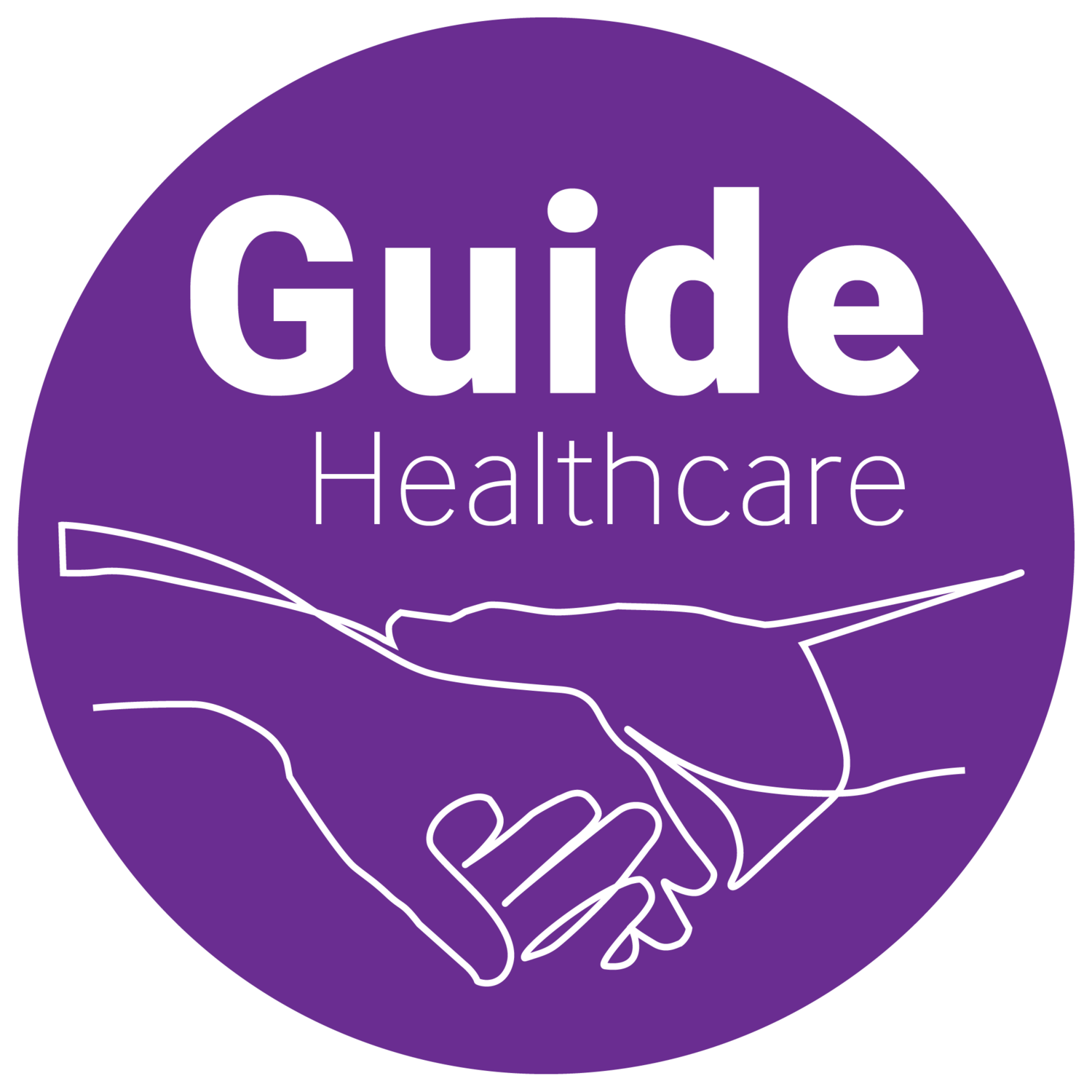
Australian National Aged Care Classification (AN–ACC) funding model
The introduction of the Australian National Aged Care Classification or AN-ACC funding model in October 2022 created one of the most exciting opportunities for change for both residential aged care providers and allied health professionals. Under AN-ACC, the funding tool now aligns with the Aged Care Quality Standards, which has not been the case for more than a decade. There is now a direct incentive to focus on improving the functional and care outcomes of aged care residents.
It’s time for innovation and at Guide, we are innovators. Our services have long been designed to positively impact the lives of residents, while supporting organisations to achieve their strategic, care and operational goals. With the introduction of AN-ACC, we haven’t had to change. Our approach has always focused on improving individual residents' quality of life. To us, this means having fun, fostering connection, being challenged, and accessing new opportunities.
Residents in aged care deserve to feel respected, be empowered and have a purpose. As an allied health team, we believe we can drive this through a person-centred approach that focuses on building confidence, supporting choice and driving independence in ways that are unpredictable, entertaining and evidence-based.
Are you looking for an innovative approach to physiotherapy services in your home? We can design a service specifically for the needs of your residents, teams and organisation.
What do our Physiotherapy Programs include under AN-ACC?
At Guide Healthcare, we do things a little differently. We see residents as superhumans, and our services are designed accordingly. We empower residents to do things that they didn’t think they could achieve, or that they haven’t done in years.
Our services are goal-orientated, consumer-focused and evidence-based. Most importantly, they are the most creative and innovative services in the aged care market. Have you ever seen a 100-year-old rower, a team of aged care “strong men”, resident marathon walkers or more than 200 older Australians from around Australia compete in live-streamed events? We have. And we can’t wait to have your residents join the fun!

Why is Physiotherapy important under AN-ACC?
The benefits of physiotherapy for older adults are well known, including improving mobility, reducing fall rates, treating chronic pain and managing the impact of many chronic diseases.
Putting that aside, the primary importance of physiotherapy under AN-ACC is likely the recognition of mobility as a primary cost driver of care. If the resident does not enter the home under a palliative care classification, mobility is the first branch in the AN-ACC model and creates the most significant impact on the resident's final classification.
This is significant for three reasons:
There is a direct value in ensuring that accurate documentation is completed prior to the resident being assessed by the external assessment team. Ensuring that you have an accurate DEMMI assessment and accompanying supportive documentation can assist in ensuring that residents are classified appropriately.
There is now no obligation to apply for a reassessment of a resident if their classification changes. As such, if a resident's mobility improves due to effective physiotherapy services, the aged care home will continue to receive a higher level of funding despite the resident's care needs significantly decreasing.
There is an incentive for aged care providers to proactively manage their AN-ACC funding levels. This is due to the importance of revenue, as well as the introduction of mandatory care minutes. Having a skilled physiotherapist and external support service such as Guide Healthcare will assist in ensuring a proactive approach to re-assessments, such as when a resident's mobility has declined or if they begin to experience frequent falls.
What do our Physiotherapy Programs include under AN-ACC?
At Guide Healthcare, we do things a little differently. We see residents as superhumans, and our services are designed accordingly. We empower residents to do things that they didn’t think they could achieve, or which they haven’t done in years.
Our services are goal-orientated, consumer-focused and evidence-based. Most importantly, they are the most creative and innovative services in the aged care market. Have you ever seen a 100-year-old rower, a team of aged care “strong men”, resident marathon walkers or more than 200 older Australians from around Australia compete in live-streamed events? We have. And we can’t wait to have your residents join the fun!
Is Physiotherapy and Occupational Therapy funded under AN-ACC?
The AN-ACC does not specifically fund allied health services. However, the Department of Health has made it clear that effective allied health services including Physiotherapy, Occupational Therapy and pain management treatments which have typically dominated allied health models under ACFI, remain a requirement under AN-ACC.
How does the AN-ACC align with the Aged Care Quality Standards?
In line with Standard 2 of the Aged Care Quality Standards, residents should be involved in ongoing assessments and planning that help get the care and services they need for their health and well-being. AN-ACC has opened the door for a clinically led and evidence-based treatment pathway.
Ensuring that allied health services are part of the ongoing clinical services provided within aged care will no doubt lead to better outcomes for residents, and reduce the risk of complaints and serious incidences.

AN-ACC Classifications
The 13 classes of care funding are set out below. Classes are based on the cost of 13 levels of care.
The greatest factors impacting the cost of care include:
mobility
cognitive ability for people with assisted mobility needs
function and pressure sore risk for non-mobile people
wound care, the risk of falling and medical needs such as daily injections.
There is also a palliative care class for people near the end of life. This class allows frail residents with a life expectancy of less than 3 months, with an approved palliative care plan, to enter a facility without an AN-ACC assessment. See What is AN-ACC Class 1 (Admit for Palliative Care) for more information.
Each class represents residents:
with similar needs and the cost of staff time to deliver consistent care
whose daily care costs are similar
with similar clinical risks and safety indicators.
Providers can ask for a new assessment for care funding if a resident’s condition has changed significantly.
This includes:
change from independently mobile to being mobile only with assistance
change from independently mobile to being not mobile
change from being mobile with assistance to being not mobile
hospitalisation for more than 5 days
2 or more days if they had a general anaesthetic.
More than 12 months have elapsed since the last AN-ACC assessment (classes 2-8)
More than 6 months have elapsed since the last AN-ACC assessment (classes 9-12)
It is not mandatory to request a new assessment if care needs have not changed.

Additional Information
-
The Australian National Aged Care Classification (AN-ACC) model is a funding system implemented by the Australian government to ensure fair and appropriate allocation of resources and funding for aged care services. The primary objective of the AN-ACC model is to accurately assess the care needs of individuals in residential aged care facilities and determine the level of funding required to meet those needs effectively.
The AN-ACC model takes into account various factors when assessing an individual's care needs. These factors include the complexity of care required, the level of dependency, and the specific requirements of the resident. By considering these elements, the AN-ACC model aims to provide personalised and tailored care plans for each individual.
To determine the appropriate funding level, a comprehensive assessment process is conducted for each resident. These assessments are completed by external assessors, independent of the aged care home where the resident lives. These external assessors must be registered nurses, physiotherapists or occupational therapists with a minimum number of years of experience. Each assessment evaluates different aspects of their care needs, such as medical conditions, mobility, cognition, behaviour, and social engagement. The outcomes of this assessment guide the funding allocation, enabling aged care providers to deliver the necessary services to meet the specific needs of residents effectively.
The AN-ACC model promotes transparency and accountability in the allocation of funding. The tool aims to ensure that resources are directed to areas where they are most needed, supporting the delivery of quality care without compromising safety or standards. The Department of Health notes that regular reviews and updates of the model will help to keep it responsive to the evolving needs of older Australians, ensuring ongoing relevance and effectiveness.
-
The Australian National Aged Care Classification (AN-ACC) funding model has a history rooted in the ongoing development and refinement of Australia's aged care system. While the specific details of the AN-ACC funding model's evolution may vary, the following provides a general overview of its historical context:
1. Introduction of Aged Care Funding Instrument (ACFI): In 1997, the Australian government introduced the Aged Care Funding Instrument (ACFI). The ACFI aimed to allocate funding to residential aged care providers based on the care needs of individual residents. It considered various factors such as activities of daily living, behaviour, and complex health care needs.
2. Productivity Commission Inquiry: In 2010, the Productivity Commission conducted an inquiry into aged care. The inquiry highlighted the need for a more transparent and equitable funding system that adequately assessed the complexity of care needs and encouraged high-quality care provision.
3. Development of the AN-ACC Model: Following the Productivity Commission's inquiry, the Australian government embarked on developing the AN-ACC funding model. This new model aimed to address the limitations of the ACFI and improve the accuracy and fairness of funding allocations.
4. Pilot Studies and Consultation: From 2013 to 2015, pilot studies were conducted to test the feasibility and effectiveness of the AN-ACC model. These studies involved collaboration between aged care providers, researchers, and government representatives. Stakeholder consultations were also carried out to gather input and refine the model.
5. Transition to AN-ACC: In 2016, the Australian government announced the transition from ACFI to AN-ACC as the new funding model for residential aged care. This marked a significant shift towards a more individualized and needs-based approach to funding allocation.
6. Implementation and Continuous Improvement: The AN-ACC funding model has undergone subsequent implementation phases and ongoing evaluation. Regular reviews and updates are conducted to ensure its effectiveness and alignment with the evolving needs of older Australians.
7. Transition period: The external assessment team conducted assessments of all aged care residents across Australia to create an efficient transition from ACFI to AN-ACC.
8. October 2022: The AN-ACC was introduced to all aged care homes nationally as the primary funding instrument.
-
Independent assessors complete assessments to distribute funding based on the individual residents’ needs. The AN-ACC was designed to reflect the resident's cost of care.
The independent assessors will use the AN-ACC assessment tool to assess the resident’s care needs and assign them an AN-ACC classification. The amount of funding provided will reflect the AN-ACC classification assigned to the resident, based on their independently assessed needs.
The AN-ACC was designed by a team from the University of Wollongong to ensure funding for providers appropriately meets the needs of residents and the costs of their care. However, the consensus from providers is that the funding allocated remains insufficient.
The assessment tool considers:
• Physical ability (including pain)
• Cognitive ability (including the ability to communicate, socially interact, problem solving, memory)
• Behaviour (including ability to cooperate, physical aggression, problem wandering, passive resistance, verbally disruptive)
• Mental health (including depression and anxiety)

Contact us.
General Enquiries
admin@guidehealthcare.com.au
02 9663 0387









